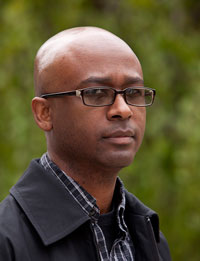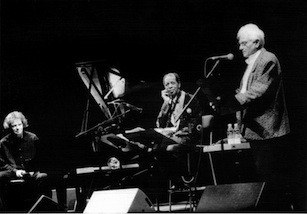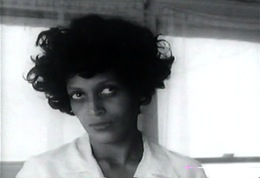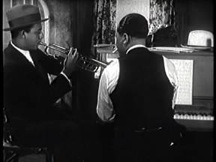Event

Franklin Cason
Avant-Garde Jazz as a Model for Cinema Studies
My current research considers that pragmatist philosophy offers a productive way through the impasse between traditional film theory and “post-theoretical” or cognitive approaches to film scholarship; a debate that had relatively little interest in, or effect on, the development of African American film practice or black film studies. To make this pragmatic inquiry address African American cinema with some specificity, I suggest an experimental approach to researching and writing about black cinema. Responding to both recent calls for a black cinema studies rooted in African-American cultural practices, and David Bordwell’s claim that film studies has much in common with musicology, I will argue that avant-garde jazz suggests several research and theoretical approaches. But unlike Bordwell’s musical analogies of film form, my target is film theory itself. Black cinema thus becomes an important case study for theorizing aesthetics and politics in cinema, generally. By exploring jazz, pragmatism, and black cultural practices, while following Richard Rorty’s lead in Philosophy and the Mirror of Nature (1981), and Michael Magee’s Emancipating Pragmatism: Emerson, Jazz, and Experimental Writing (2004), I take seriously the possibilities offered by bridging the unique interests between black film analysis, cognitive film theory, screen theory, critical race theory, musicology, deconstruction, and pragmatism.

Jacques Derrida & Ornette Coleman

Film still from Halie Gerima's Bush Mama (1979)

Film still from Dudley Murphy's Black and Tan Fantasy (1929)
Franklin Cason Jr. is an Assistant Professor at Temple University where he teaches media production, film theory and film history courses. His research interests have been primarily concerned with film, modern visual culture and media studies. As such, his research, writing and artistic practice reaches across the disciplines of art history, film studies, digital multimedia, graphic novels, philosophy, sociology, literature, musicology, aesthetic theory, visual studies and historical poetics. His essay “Symbiopsychotaxiplasticity: Some Takes on William Greaves,” co-authored with Tsitsi Jaji, is forthcoming in Theorizing Production/Producing Theory (Routledge). Drawing on his experience as an artist, writer and filmmaker, his current research explores aesthetics, cinematic excess and an improvisational approach to film analysis in order to reconsider the role of aesthetics in African-American cinema and encourage a different set of discussions.
